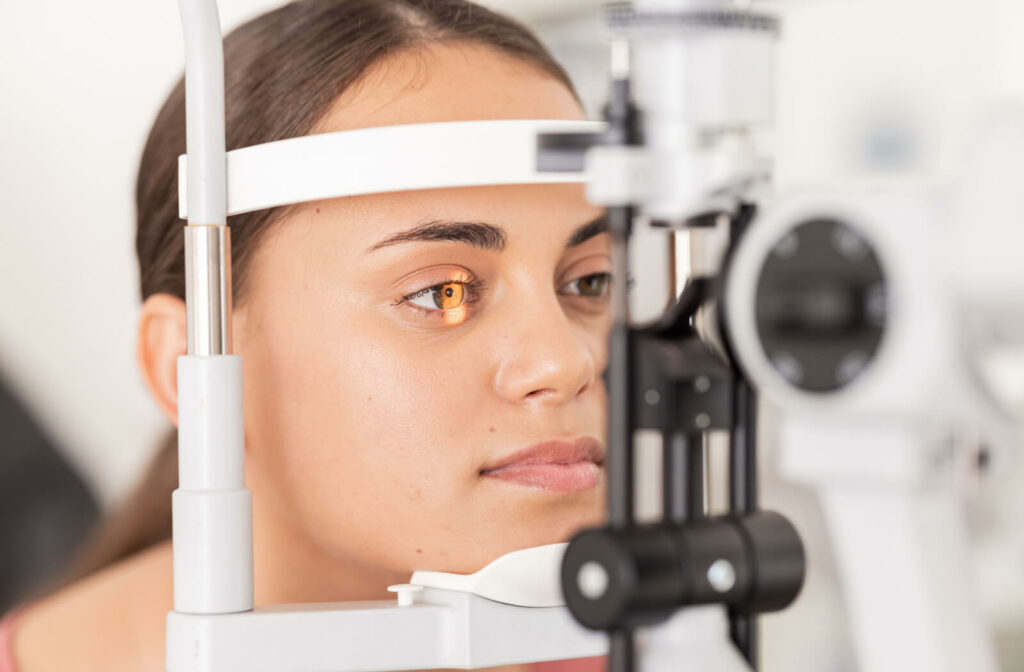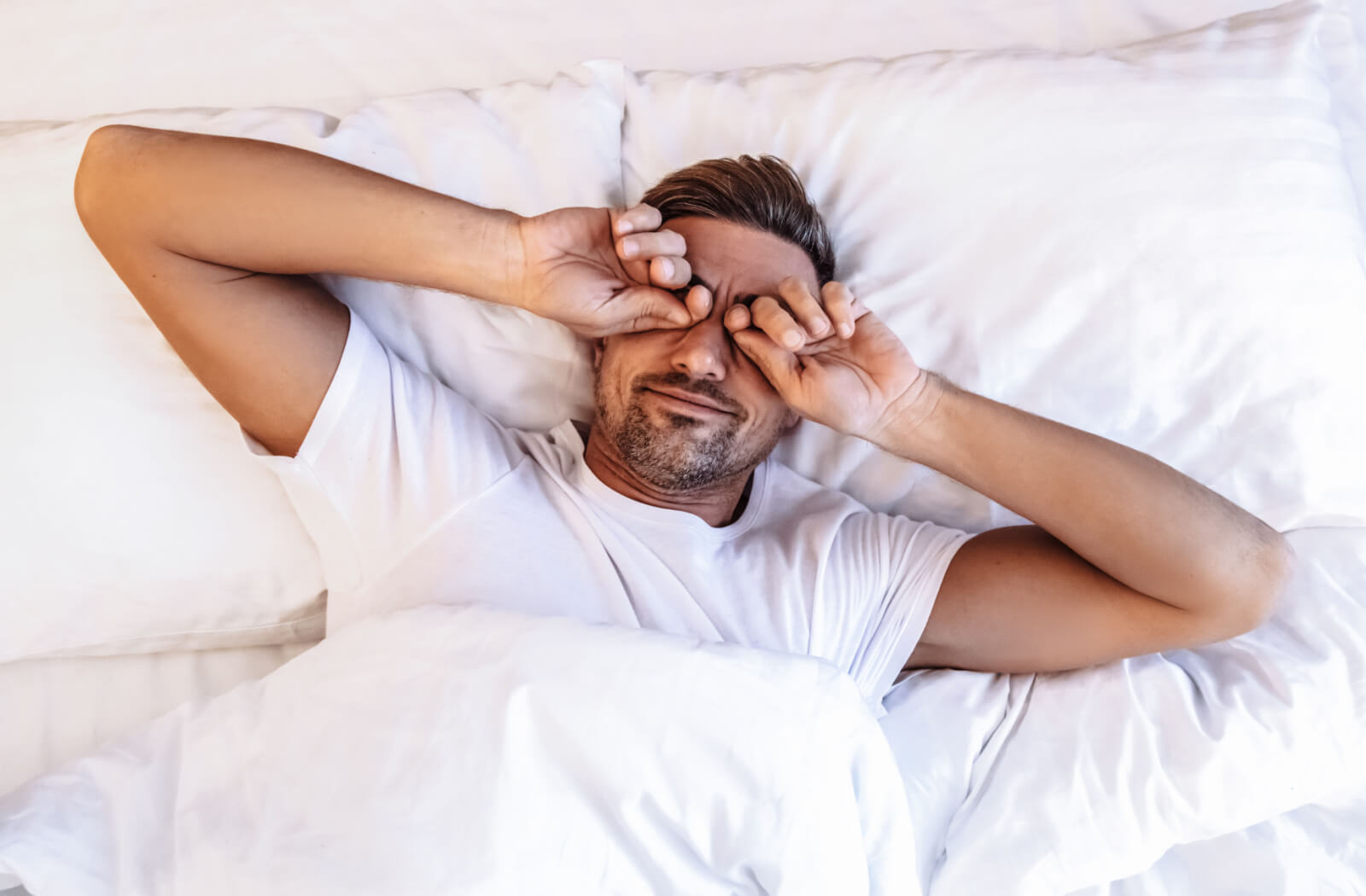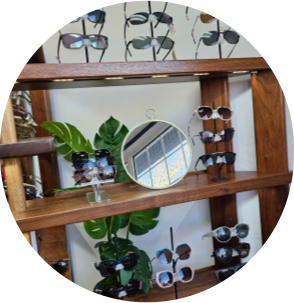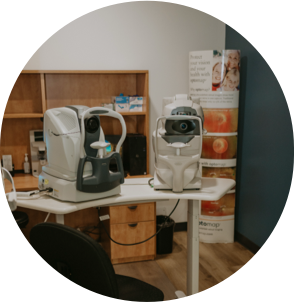Experiencing dry and uncomfortable eyes upon waking is a common issue affecting individuals across various age groups. It’s important to recognize that this discomfort can stem from multiple factors, not limited to simple fatigue. Undergoing an eye exam could be instrumental in identifying the underlying cause.
The reasons behind morning eye dryness vary widely, including:
- Insufficient sleep
- Allergic reactions
- Irritation from contact lenses
- Dehydration
- Certain medications
- Environmental conditions
- An underlying infection
Fortunately, this issue doesn’t have to be a persistent nuisance. Consulting with an eye care professional at Prairie Vision can offer insights into the specific cause and provide a treatment plan to alleviate discomfort.
Morning Dry Eye Causes
There are many reasons why you may be waking up with dry eyes. Ahead, we’ll explore some of the most common.
Insufficient Sleep
Inadequate sleep significantly contributes to the experience of waking up with dry eyes. The mechanism is straightforward: a lack of sufficient rest requires your eyes to exert more effort to remain lubricated, often resulting in discomfort and dryness. The remedy involves making sure that you receive an optimal 7–8 hours of sleep nightly.
Nocturnal Lagophthalmos
Approximately 20% of individuals suffer from nocturnal lagophthalmos, characterized by partially open eyes during sleep. This condition may stem from neurological or muscular disorders, eyelid damage, or thyroid-related eye conditions.
Typically, the act of closing our eyes during sleep serves to block out light, safeguard our eyes, and maintain moisture. However, those affected by nocturnal lagophthalmos lose out on these benefits, leading to potential dehydration of the eyes, exposure to environmental elements, and compromised quality of rest.
Ignoring this condition might bring about various complications, including vision impairment, eye infections, or corneal damage. While not always dangerous, it’s advisable to discuss any concerns regarding morning eye dryness with an ophthalmologist.
Allergic Reactions
Allergies frequently contribute to the occurrence of dry eyes upon waking. Exposure to allergens such as pollen, dust, or various irritants can result in eye inflammation and dryness, leading to discomfort.
To mitigate this issue, it is recommended to reduce exposure to these allergens whenever possible. Additionally, the application of allergy-specific eye drops or the intake of antihistamines may be necessary to alleviate symptoms.
Irritation from Contact Lenses
Your contact lenses might be the culprit behind your dry eyes in the morning. They can restrict the flow of oxygen to your eyes, leaving them feeling dry and uncomfortable. Consider using eye drops formulated specifically for contact lens users, or perhaps give your eyes a rest by switching to glasses for a while.
Dehydration
If you’re waking up with dry eyes, it could be that you’re not drinking enough water. When you’re dehydrated, your body struggles to produce enough tears to keep your eyes nice and moist. Make sure that you drink plenty of water throughout the day and consider cutting back on caffeine and alcohol.
Certain Medications
If you’re taking medications such as antihistamines or antidepressants, they could be the culprits behind your dry eyes in the morning. It’d be wise to discuss this with your doctor. They might have alternative treatments available, or perhaps they can work with you on a way to alleviate the dryness without altering your current medication regimen.
Environmental Conditions
External factors such as air conditioning, windy weather, or simply dry conditions might be the reason behind your eyes feeling dry in the morning. One solution is to consider placing a humidifier in your bedroom overnight, or even a bowl of water could help reintroduce some moisture into the environment.
Another helpful tip is to not forget to wear sunglasses when you go outside. They’re excellent for shielding your eyes from wind and dryness.
An Underlying Infection
Blepharitis is a prevalent condition characterized by inflammation of the eyelids, leading to symptoms such as dryness, redness, and swelling, particularly noticeable in the morning.
If you’re experiencing these symptoms, it’s advisable to consult with an ophthalmologist for a thorough eye exam and appropriate treatment recommendations.
Medical Conditions
If you’re dealing with medical conditions like Sjogren’s syndrome, rheumatoid arthritis, or lupus, experiencing dry eyes might be a common symptom. It’s crucial to seek professional medical advice and adhere to the prescribed treatment plan to manage these symptoms effectively.
Dry Eye Treatment Options
Dry eyes can be frustrating, uncomfortable, and harmful. Thankfully, there are solutions.
Punctal Plugs
Punctal plugs, small medical devices about the size of a grain of rice, are inserted into the tear ducts to slow down the drainage of tears. This helps in keeping the eyes well-lubricated for a longer period. They can also be effectively used alongside artificial tears for enhanced comfort.
Bruder Mask
The Bruder mask uses a special design to gently warm up your eyelids. This helps clear out any clogs in your oil glands, making it easier for the oils to mix back into your tears.
Labtician Products
At Prairie Vision, we carry a range of ophthalmic products by Labtician, including eye drops and gels.
PROKERA®
PROKERA® acts as a powerful ally, effortlessly combating inflammation and warding off scarring, while seamlessly promoting your eye’s natural healing process.

Understanding & Treating Morning Dry Eye
At Prairie Vision in Wainwright and Vermilion, we provide advanced treatment solutions designed to eliminate discomfort, making sure that you start your day with ease. Schedule your appointment online and partner with us in maintaining your eyes’ optimal health.













